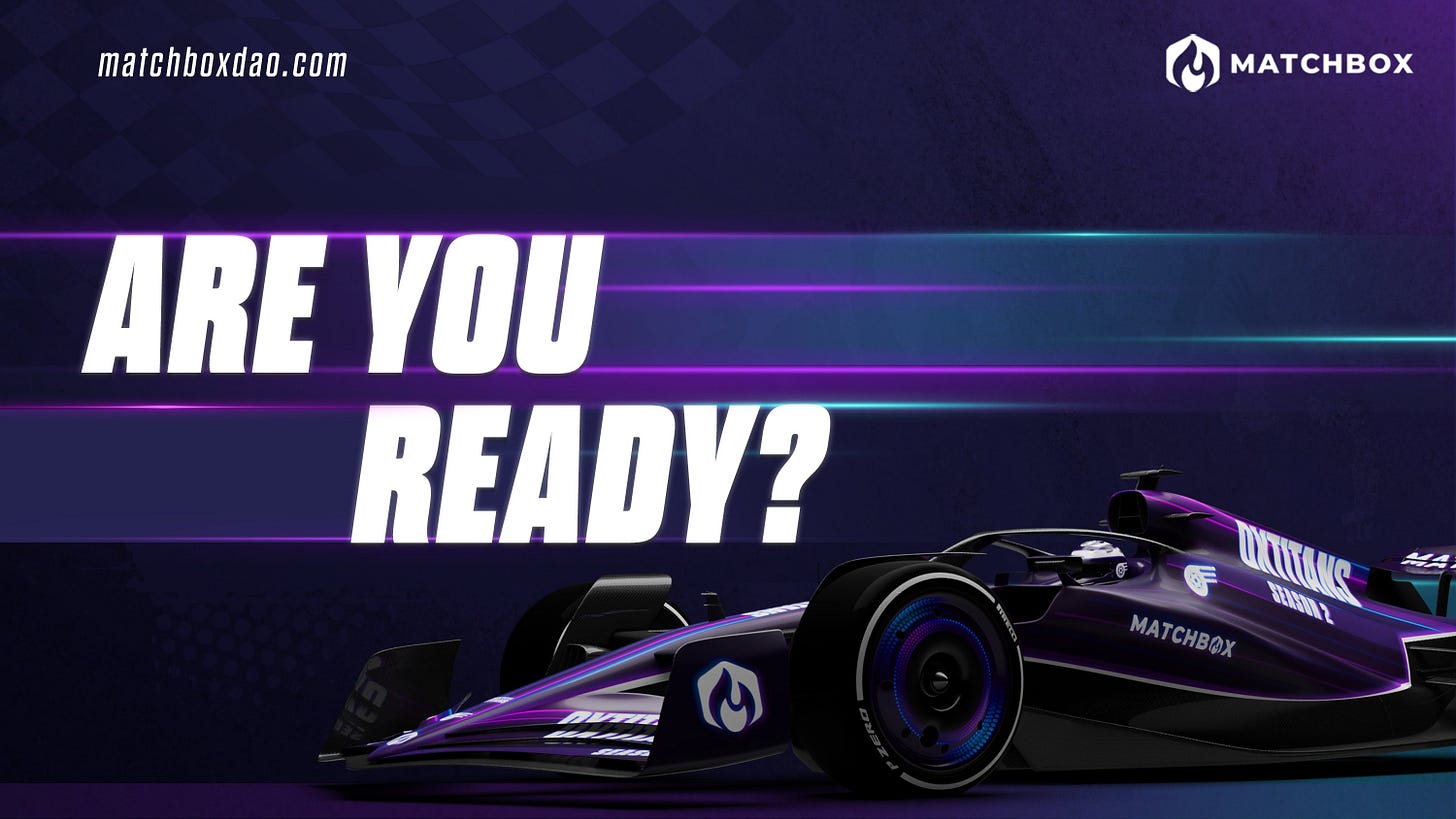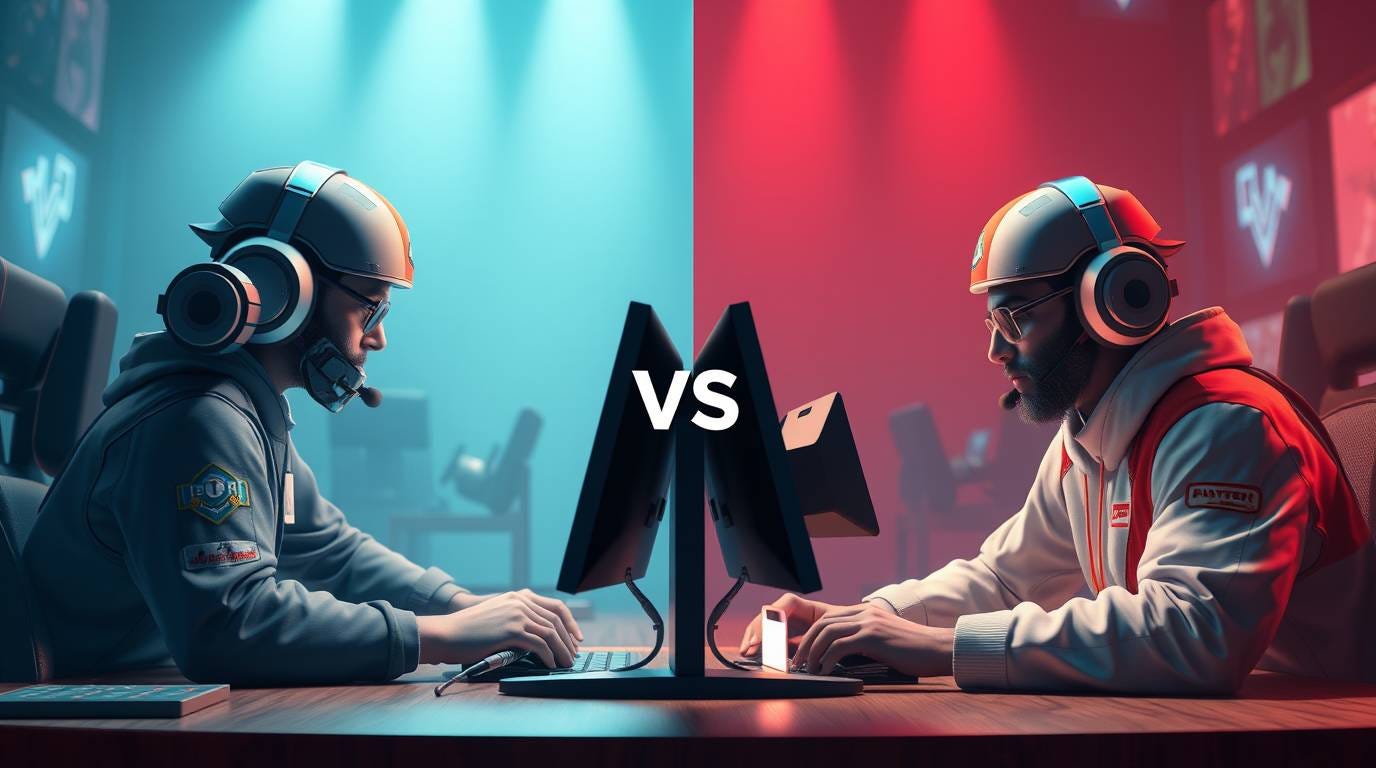GameFi Edition: Decentralized Esports Leagues, Real or Mirage?
How Blockchain is Redefining Competitive Gaming
Esports is a booming industry with annual revenues surpassing $1 billion. Yet, much of its ecosystem remains locked in centralized models, where a few entities control prize pools, tournament rules, and governance. Enter decentralized esports leagues, hailed as the GameFi solution to these limitations. These leagues, powered by blockchain technology, promise transparency, fairness, and empowerment by putting players and fans at the heart of decision-making.
But is this evolution truly disruptive, or are decentralized esports leagues an ambitious experiment doomed by technical challenges and scalability concerns? By focusing on platforms like MetaFight and MatchBox DAO, this article will unravel the reality behind the hype. Along the way, we’ll examine their mechanics, highlight adoption barriers, and explore how these leagues compare with traditional esports. Finally, we’ll predict how this space could redefine competitive gaming.
The Rise of Decentralized Esports in the GameFi Era
A Shift from Centralization
For decades, the esports industry has operated within a tightly controlled framework. Publishers, tournament organizers, and corporate sponsors steer everything—from matchmaking algorithms to the distribution of prize money. Players and teams, while critical to the ecosystem, are often at the mercy of these centralized bodies, which prioritize profits over community interests.
Blockchain technology is now challenging this dynamic with decentralization as its core philosophy. By introducing governance through DAOs (decentralized autonomous organizations) and automating processes through smart contracts, platforms claim to empower gamers, fans, and developers. Transparent prize payouts, low barriers to entry, and equitable governance models are just the tip of the iceberg.
Yet, the question remains: does this vision hold up in reality? To answer that, let's examine two pioneering platforms in the decentralized esports sector.
Real-World Use Cases of Decentralized Esports
MetaFight - Empowering MMA Fans Through Blockchain
Combines the passion of Mixed Martial Arts (MMA) with the mechanics of blockchain gaming. At its core, this platform lets users own, trade, and stake on licensed NFTs of fighters. Beyond gamifying MMA, it aims to create an entirely new way for fans to engage with their favorite sport.
Key Features
NFT Fighters
Fans can collect and trade intricately designed digital assets representing professional MMA fighters. These NFTs are more than collectibles; they act as game pieces in fantasy-style tournaments.
Staking Ecosystem
Using the $FIGHT token, users stake to support fighters or predict tournament outcomes. This generates rewards, aligning fan engagement with potential financial gains.
Community Governance
MetaFight incorporates DAO-like voting mechanisms, allowing token holders to influence platform decisions such as tournament structures and prize models.
While MetaFight’s model inspires optimism, skepticism arises around its decentralization claims. Questions linger about how deeply the community's voice impacts key decisions. If large stakeholders dominate voting, the system risks becoming centralized in practice. Additionally, the niche focus on MMA could narrow its reach, making broader adoption difficult.
MatchBox DAO - Building the Backbone of Blockchain-based Esports
Unlike MetaFight’s single-sport focus, MatchBox DAO aims to be a decentralized infrastructure provider for competitive gaming. Rather than creating games, it equips developers and communities with tools to launch on-chain tournaments, manage matchmaking, and automate prize distribution.
Key Features
On-chain Matchmaking
Using smart contracts, MatchBox facilitates tamper-proof matches and result tracking, eradicating the risk of disputes.
Transparent Prizes
Prize pools are managed entirely on-chain. Once a tournament ends, smart contracts ensure winnings are distributed fairly and instantly, without intermediaries.
DAO Governance
Participants vote on platform policies, such as tournament rules or development priorities.
Implementing DAOs comes with its own set of hurdles. Token holder participation can be dismally low, leading to governance dominated by a handful of active voters. Beyond this, the complexity of engaging mainstream developers might limit adoption, as many esports developers remain wary of blockchain integration.
Both MetaFight and MatchBox DAO showcase how blockchain can revolutionize esports, but scaling these concepts beyond niche adopters remains a considerable challenge.
Technical Barriers to Decentralized Esports Growth
Despite their promise, decentralized esports leagues face severe technical and structural limitations that could hinder their mainstream adoption.
Scalability Concerns
Blockchain networks are notoriously limited in their ability to handle high transaction volumes. For esports, where fast-paced games require real-time processing, lag or high gas fees could alienate players. Although Layer-2 solutions like Polygon and Immutable X provide promise, broad adoption is still years away.
Tokenomics and Sustainability
The crux of blockchain platforms often lies in their token economies. Poorly designed tokenomics, such as oversupply or weak utility, could render platforms unsustainable. For example, MetaFight’s $FIGHT token must balance rewards and deflationary mechanisms to maintain long-term value.
Onboarding Complexity
Convincing mainstream gamers to adopt decentralized platforms isn’t straightforward. Wallet setups, token purchases, and concerns over crypto volatility pose significant deterrents. Seamless onboarding, possibly through fiat payment support or user-friendly interfaces, will be key to breaking these barriers.
Regulatory Risks
Cross-border gaming laws, NFT intellectual property disputes, and classification of tokens as securities create a fog of legal uncertainty. Until international standards align, this regulatory grey area will deter broader adoption of decentralized esports.
Comparing Decentralized and Traditional Esports
How do decentralized leagues stack up against their traditional counterparts?
Transparency
Blockchain brings unparalleled transparency to prize distributions and governance, while traditional esports are often opaque about financial flows. However, transparency comes with a tradeoff, as immature blockchain tech can be vulnerable to hacks or misuse.
Community Governance
Decentralized leagues empower gamers with decision-making rights via DAOs. But low voter turnout and token monopolies mean inclusivity remains more an ideal than a reality.
Funding Models
Traditional esports thrive on sponsorships from brands like Red Bull and Intel, while decentralized leagues rely on token ecosystems. If token prices collapse, it could jeopardize project sustainability.
Future Scenarios for Decentralized Esports
The road ahead is as exciting as it is uncertain. Here are some pathways decentralized esports could explore:
Partnerships with Traditional Esports Giants
Imagine a mainstream esports tournament incorporating MatchBox DAO’s governance model or MetaFight’s staking mechanics. Such collaborations could drive adoption while retaining traditional esports' massive audiences.
AI-Powered Ecosystems
Artificial intelligence could amplify blockchain gaming platforms, automating matchmaking, improving DAO operations, and reducing fraud. This synergy could make decentralized esports leagues operationally efficient.
Simplified User Interfaces
Platforms might pivot to gasless transactions, fiat-to-token gateways, or even non-blockchain-facing experiences, making Web3 esports accessible to casual gamers.
Decentralized esports leagues teeter between visionary promise and practical limitations. Platforms like MetaFight and MatchBox DAO showcase exciting experiments, leveraging blockchain to deliver transparency, autonomy, and innovative fan engagement. But challenges like scalability, tokenomics, and regulatory uncertainty cannot be ignored.
If these hurdles can be overcome, decentralized esports could redefine competitive gaming, empowering communities like never before. While it’s too early to declare victory, GameFi enthusiasts and gamers alike should keep a close eye on this captivating evolution. One thing is clear: the buzz around decentralized esports isn’t just noise. It’s the sound of an industry on the cusp of change.












